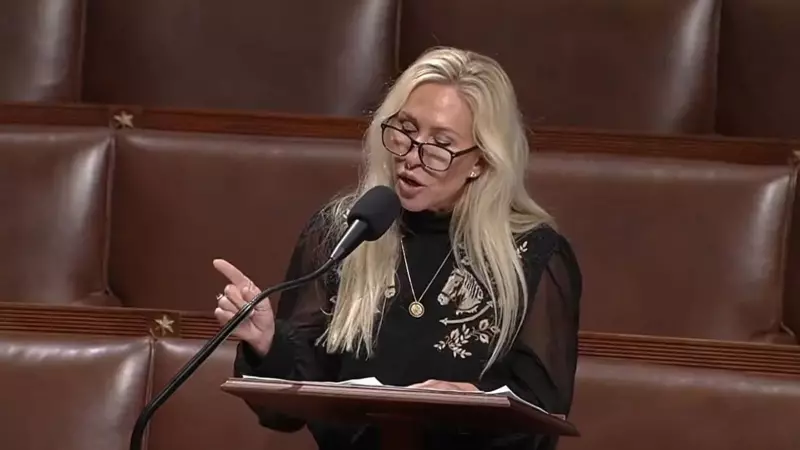
Republican Congresswoman Marjorie Taylor Greene has made startling revelations about receiving threats following her political separation from former President Donald Trump. The Georgia lawmaker openly blamed Trump for the dangerous situation she now faces.
The Political Fallout and Security Concerns
In a recent development that has sent shockwaves through American political circles, Marjorie Taylor Greene confirmed experiencing serious threats after her relationship with Donald Trump soured. The conservative firebrand, known for her staunch support of Trump during his presidency, now finds herself in a precarious security position due to their political divergence.
The situation came to light when Greene spoke about the consequences of her changed relationship with the former president. The threats began emerging after their political paths separated, creating an unsafe environment for the congresswoman who had previously been one of Trump's most vocal allies in Congress.
Background of the Trump-Greene Relationship
Marjorie Taylor Greene had built her political identity around unwavering support for Donald Trump. Her rise in Republican politics was closely tied to Trump's endorsement and the support of his base. However, recent developments have created a rift between the two prominent Republican figures.
The exact reasons for their separation remain complex, but the consequences have been immediate and severe for Greene. The congresswoman now faces security threats from individuals who previously supported her when she was aligned with Trump. This dramatic turn of events highlights the volatile nature of political alliances in contemporary American politics.
Security Implications and Political Ramifications
The threats against Greene have raised serious concerns about the safety of political figures who change their alliances. Security experts are closely monitoring the situation, recognizing the potential dangers when high-profile politicians experience such public splits from powerful figures like Trump.
This incident underscores the intense polarization within American politics and the potential consequences for lawmakers who shift their political positions. The situation also raises questions about responsibility and accountability when political rhetoric leads to real-world security threats against elected officials.
Greene's decision to publicly blame Trump for the threats represents a significant moment in their relationship and in Republican politics more broadly. It demonstrates how quickly political alliances can change and the personal risks involved when prominent figures in the same party experience public disagreements.
The congresswoman's revelations have sparked discussions about the need for better security protocols for politicians facing threats due to changing political circumstances. As the situation continues to develop, it remains to be seen how this will affect both Greene's political future and the broader dynamics within the Republican Party.





